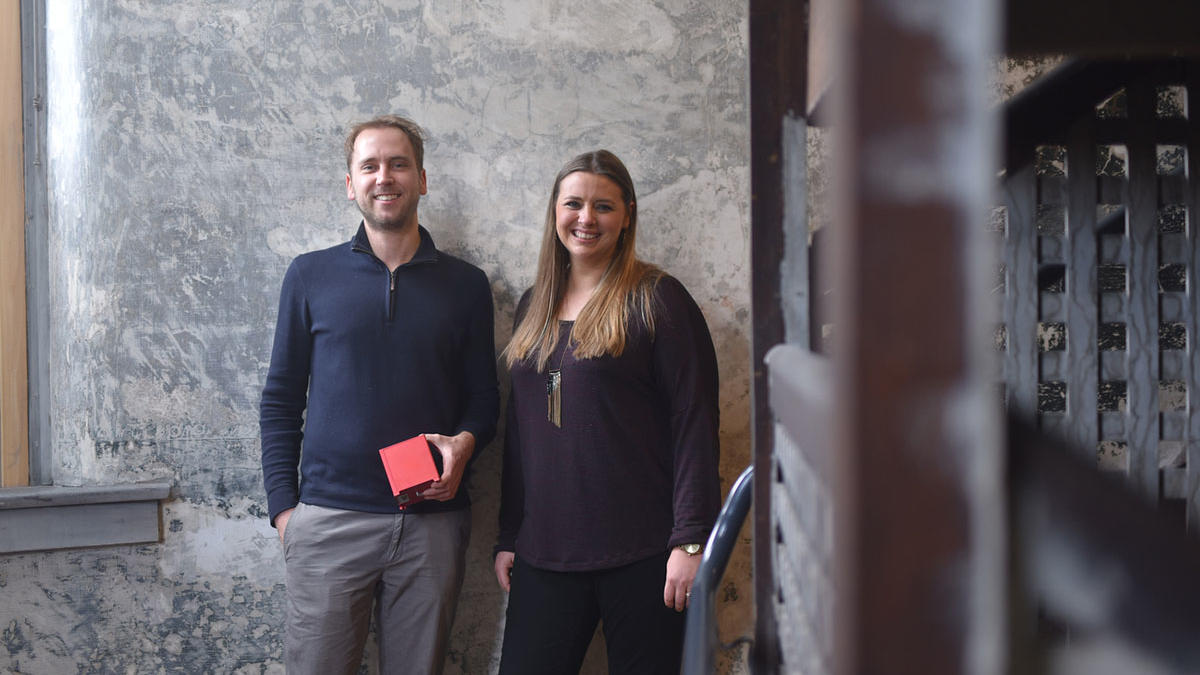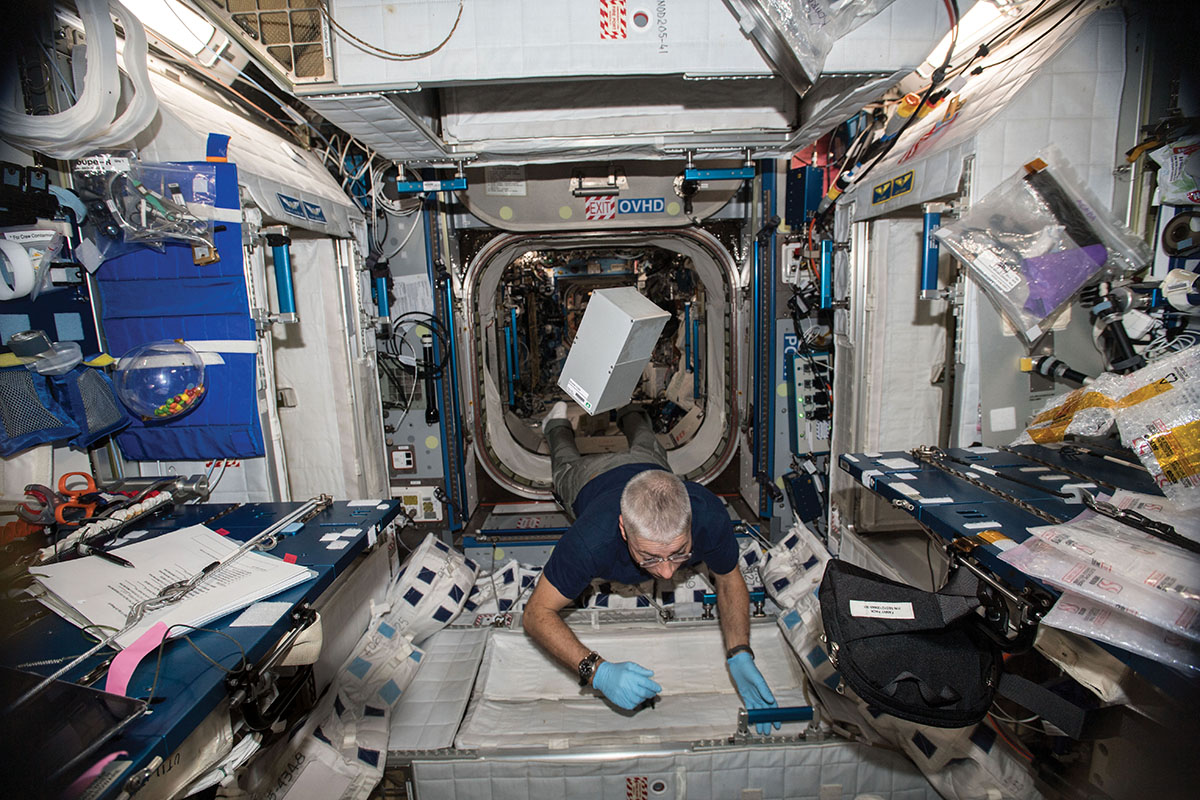By Kelly Hahn
ORIGIN
Located in downtown Lexington, aerospace startup Space Tango describes itself as "a full-service solution to micro-gravity research and manufacturing.”
What, exactly, does that mean? CEO and University of Kentucky College of Engineering alumnus Twyman Clements provides this explanation:
“We design project architectures and experiments specifically for a microgravity — which is close to zero gravity — setting. We want to see how that unique environment affects bacteria, insects, seeds, viruses, pharmaceuticals, materials and more. What we learn in space will enable us to make life better on this planet.”
Where does microgravity research take place? On the International Space Station (ISS) — a three-day rocket ride from Earth. Thanks to a Space Act Agreement, Space Tango is able to use the ISS for commercial purposes.
“One of the great things about working with NASA is that they are very accommodating for small companies. Without that, we wouldn't be anywhere,” Clements says.
Clements co-founded Space Tango in July 2014. The company has been moving at breakneck speed ever since.
TWYMAN CLEMENTS
To understand Clements' entrepreneurial spirit, one needs to look no further than his upbringing. Clements and his three brothers — all of them UK engineering graduates — learned what life should look like on a cattle farm outside Bardstown, Kentucky.
“My parents are among my biggest influences. They are good people, and they instilled that in me and my brothers,” Clements describes. “Plus, they are entrepreneurs themselves. While working in agricultural sales, my father started businesses in real estate and insurance. My mother opened a clothing store.”
Despite earning bachelor’s and master’s degrees in mechanical engineering from UK, Clements insists he is not much of a classroom learner.
“I need to know the problem I’m solving before I learn the tools needed to solve it,” he explains.
That’s how Clements, as an undergraduate student, ended up working in the Kentucky Space Systems lab operated by another of his mentors, Professor Jim Lumpp. At its peak capacity, the lab contained anywhere from 10-15 students huddled before a bank of computer monitors, interacting with space shuttle launches and the ISS.
“UK helped me the most by giving me an opportunity to work in a lab as an undergraduate,” Clements says.
Clements remains connected to the space program at his alma mater. Space Tango is currently engaged with NASA and UK faculty on an $750,000 NASA EPSCoR grant involving small-satellite swarms. Michael Seigler, associate professor of mechanical engineering at UK, is the project investigator.
“I had Dr. Seigler when I was a student, and we kept in touch. We had worked on grant proposals together before, but this was the first to be awarded,” Clements says.
While Clements primarily honed his education outside the classroom, he says one class continues to pay dividends in his work at Space Tango: EGR 599, otherwise known as the “Dean’s Leadership Class.”
“That class was a real game changer because I learned how people with technical backgrounds operated in positions of leadership. I don’t need to know all the details of our daily work, but I do need to know what changes as I go higher and higher up the decision tree.”


